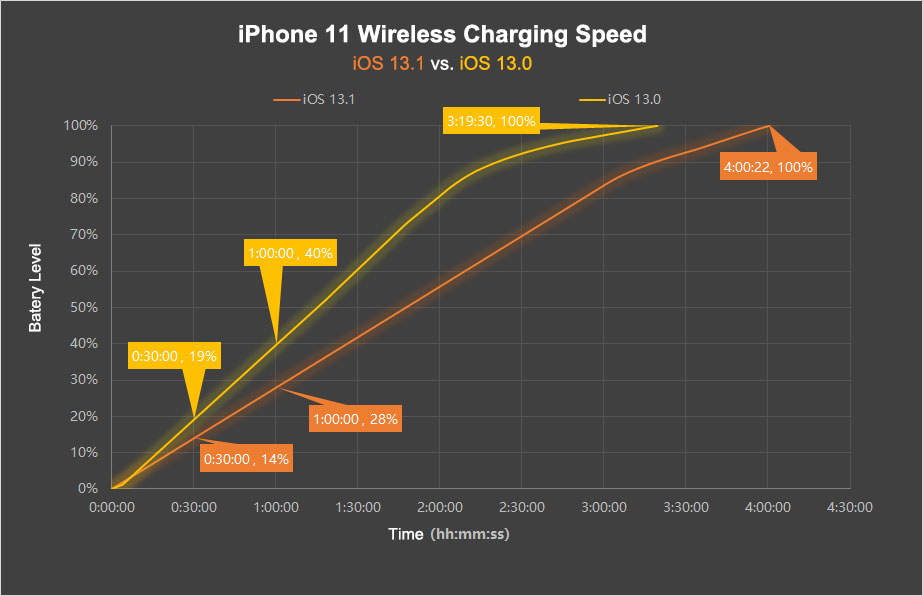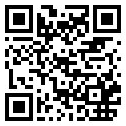iOS 13.1 Cuts Wireless Charging Speeds of Some Fast Chargers to 5W
Apple seems to have cut charging speeds for certain non-regulated, Qi-based wireless chargers in its latest iOS 13.1 update.
That fact was discovered by ChargerLAB during a routine test of the wireless charging speeds on the new iPhone 11 models. According to the site, the change was made between iOS 13 and iOS 13.1.
Charging Speeds
ChargerLAB indicates that a handful of wireless chargers that were previously able to charge iPhones at 7.5W speeds were cut to 5W in iOS 13.1. That, of course, increases overall charging times, as you can see in ChargerLAB’s graph below.
On the other hand, there are still plenty of chargers that aren’t affected by the change and can still charge at 7.5W. Those include pads sold by Belkin, Mophie, Native Union, Anker and Logitech.
As ChargerLAB notes, all of the wireless chargers unaffected by the iOS 13.1 update are ones sold by Apple in its stores.
On some of those product listings, Apple advertises what it calls “Apple Fast Charging,” which is essentially fixed-frequency 7.5W charging speeds. That technology has since been incorporated into the wider Qi standard, so it’s no longer Apple-specific. So what’s going on?
Why Did Apple Cut 7.5W Support?
Despite what you might think, Apple does not appear to have cut 7.5W support to force you to buy chargers from its retail stores.
Instead, it looks like Apple is restricting 7.5W charging speeds to pads that use fixed-frequency voltage regulation. That’s likely due to safety and overheating considerations.
That’s almost undoubtedly the reason why all of the Apple Store-sold charging pads support 7.5W charging. Not because Apple is favoring its own promoted products, but because it’s not going to sell cheap or shoddy products in its store.
The non-Apple chargers that ChargerLAB describes in its testing are likely lower-quality Chinese pads with variable frequency charging. Those cheap products probably don’t meet the Qi standard, they could likely cause overheating and may even be dangerous for a phone or its user.
That’s especially true since wireless chargers, in general, cause a device to heat up more than traditional charging methods. That isn’t great for a device’s battery, and in the worst case scenarios, may even be a fire risk.



